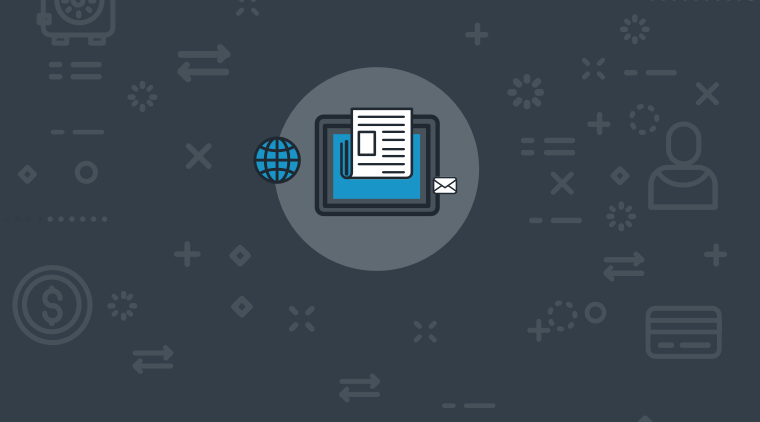Understanding Your Equifax® Credit Report and Credit History


Highlights:
- Learn what information is on your Equifax® credit report.
- Hard inquiries on credit reports can impact credit scores, but soft inquiries do not.
- Do your credit homework before shopping for a loan.
School report cards contain numbers or letters summarizing and evaluating students' performance. Your credit reports aren't much different. Your credit reports contain information summarizing how you have handled credit accounts, the different types of accounts and your payment history.
Your Equifax credit report is made up of:
- Personal information such as your full name, address, and Social Security number.
- Credit account information as reported to Equifax by your lenders and creditors. This information includes the types of accounts, the date those accounts were opened, your credit limit or loan amount, current balances on the accounts and payment history.
- Inquiry information. There are two types of inquiries: “hard” and “soft.” A hard inquiry is typically when a lender or creditor is looking to make a credit decision based on the information in your credit report. Multiple hard inquiries could impact your credit scores for up to two years. Hard inquiries can remain on your Equifax credit report for up to two years. A soft inquiry may appear on your credit reports for a variety of reasons. A soft inquiry may appear if you're reviewing your own credit report, or a creditor reviews your credit report in connection with an existing account, or lenders/insurers obtain a credit report to provide you with pre-approved offers of credit or insurance. Employment and landlord credit checks are soft inquiries. Soft inquiries do not affect your credit scores.
- Bankruptcies and related details about them, such as the filing date and type of bankruptcy.
- Collections accounts. This includes past-due accounts that have been turned over to a collection agency. These can include your credit accounts, as well as accounts with doctors, hospitals, banks, retail stores, cable companies, mobile phone providers and any other past-due accounts turned over to a collection agency. Collections stay on your credit report for up to 7 years from the date the account first became past due. They generally have a negative impact on your credit scores.
The only people or companies allowed to access your credit reports are those with “permissible purpose”. This means they must have a very specific reason to be checking your credit report. That might be because you've applied for a loan or credit card, for example, or are seeking to rent an apartment. Lenders and creditors who have permissible purposes to access your credit report information may use it, along with other criteria, to help them make decisions about whether to extend you credit and on what terms.
Why inquiries are important
The “inquiries” section of your Equifax credit report serves as a record of who has looked at your credit report. There are two types of inquiries: “hard” and “soft.”
Hard inquiries occur when lenders or creditors review your Equifax credit report because you have applied for a loan, credit or service — a credit card, mortgage or auto loan. Hard inquiries remain on your Equifax credit report for up to two years and may impact credit scores.
Soft inquiries do not impact credit scores. For instance, soft inquiries result from checking your own Equifax credit report or companies extending you pre-approved credit card offers. Checking your Equifax credit report regularly can help you monitor your credit accounts and help you to recognize inaccurate or incomplete information, or suspicious activity that may be an early warning sign of potential identity theft.
Do your credit homework
The more you know about your credit accounts and credit history before making a big decision like buying a house or a car, the more prepared you will be to take on the financial obligations that may happen as a result. Here are some things to consider:
- Check your credit reports before applying to better understand what information potential lenders and creditors may be evaluating. You can create a myEquifax™ account to get free Equifax credit reports each year. Or, get a copy of your credit report from each of the three nationwide consumer reporting agencies at annualcreditreport.com.
- When shopping around for a loan, consider that if you apply for a loan with different lenders to see different interest rates they can offer you, these hard inquiries may impact your credit scores.
- Multiple hard inquiries within a certain time period while shopping for a home or auto loan are generally counted as one inquiry in many credit scores. The time period varies depending on the credit scoring model, but it's typically 14 - 45 days. This allows you to check different lenders and loan terms. These hard inquiries may show on your credit reports, but generally only one will impact credit scores.
However, this exception to the time period in which hard inquiries may impact your credit scores generally doesn't apply to other types of loans such as credit cards. Those hard inquiries usually impact credit scores.
Learning more about your credit report before you go loan shopping may help you prepare for any impact they might have on your credit scores.
Get your free credit score today!
We get it, credit scores are important. A monthly free credit score & Equifax credit report are available with Equifax Core CreditTM. No credit card required.


